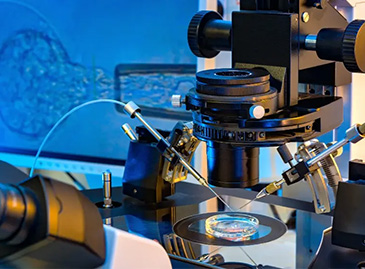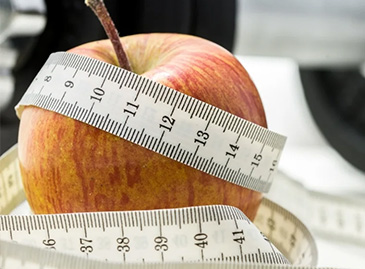
Kidney Transplantation: Procedure, Risks, and Recovery
Chronic kidney disease is a debilitating condition that can have serious impacts on a person's health. In this article, we provide information about kidney transplantation. If you require assistance, please do not hesitate to contact Istanbul Med Assist.
The surgeon replaces your damaged kidney with a healthy kidney from a living donor in a kidney transplant. When your new kidney starts functioning, you will no longer need dialysis. The donor can be a compatible family member or someone you know for at least 3 years… (such as a friend, neighbor, colleague,..) The other important point is; The Donors can live a healthy life with a single kidney.
Your kidneys’ shape resembles beans. They are on either side of your spine, just below your rib cage. Also, each one has the size of a fist.
The primary function of your kidneys is to filter waste, minerals, and fluids from your blood and produce urine. However, if your kidneys lose their function, fluid, and waste build up in your body. As a result, your blood pressure rises, and you may have end-stage kidney disease. Also, end-stage kidney disease happens when your kidneys lose 90% of their normal function.
The most common causes of end-stage kidney disease are:
- Diabetes
- Chronic, uncontrolled blood pressure
- Inflammation and injury to the tiny filters in your kidneys
- Polycystic kidney disease
People with end-stage kidney disease must continue dialysis regularly or have a kidney transplant.
Turkey’s legislation on kidney transplants does not allow organ donations for foreigners from deceased donors. Therefore, you should come to Turkey with your donor for a kidney transplant. Your donor may be your relative or someone you’ve known for years. Or, you may choose the domino transplantation method and find a compatible donor.
Why is it done?
Kidney transplantation is a much better alternative to a lifetime of dialysis. Your surgeon can treat chronic or end-stage kidney disease with a kidney transplant. Thus, you will feel much better and live longer.
Advantages of kidney transplant over dialysis:
- Better quality of life
- Lower risk of death
- Fewer dietary restrictions
- Less treatment cost
However, dialysis may be a safer option for some patients.
Problems that may prevent kidney transplant:
- Advanced age
- Serious heart disease
- Active or newly treated cancer
- Dementia or poorly managed mental illness
- Substance use disorder
Risks
Your surgeon can treat advanced kidney disease and kidney failure with a kidney transplant. However, some types of kidney disease may come back after the transplant.
Kidney transplant risks:
- Risks of surgery
- Rejection of the donor organ
- Side effects of anti-rejection drugs
When deciding on a kidney transplant, consider the risks carefully. Then, discuss your situation with your family and friends and try to make the best decision for yourself.
Our highly trained and experienced doctors and transplant teams perform living-donor kidney transplants with a 95% success rate.
How Do You Prepare?
If you decide where to get a kidney transplant, there are criteria to consider. Firstly, you should examine the number and type of transplants performed in this center and the survival rates. Also, make sure the transplant center has the latest technology and techniques.
Evaluation
Your transplant team will evaluate you for kidney transplant surgery.
To be eligible for a transplant, you should:
- Be healthy enough to tolerate the medications
- Not have a medical problem that may prevent the success of the transplant.
- Use your medicines as instructed by your doctor and follow your transplant team’s instructions.
The evaluation phase can take several days.
The process includes the following:
- Detailed physical examination
- X-ray, MRI, or CT scans
- Blood tests
- Psychological evaluation
- Other tests your doctor may prescribe
After the evaluation, your transplant team will give the results. Then, you find out if you are eligible for a kidney transplant.
Before the Procedure
There are some important points to know before the procedure.
Finding a match
You will need a living donor to have a kidney transplant in Turkey. Additionally, your donor may be a family member or a friend. Then, your transplant team makes detailed evaluations to determine the suitability of the donor’s kidney:
Blood typing:
It is better to find a donor with a compatible blood type. However, your doctor can perform the transplant even if there is a blood incompatibility. As a result, you need additional treatments before and after the surgery.
Tissue typing:
Next, there is a tissue typing test. Your doctors compare genetic markers that increase the chances of your new kidney being permanent. So, a good match means your body is less likely to reject your new kidney.
Crossmatch:
Lastly, your doctors mix your and your donor’s blood in small samples. Thus, your doctor can see if the antibodies in your blood will react with specific antigens in your donor’s blood. A negative result is a good news. Again, your doctor may perform the transplant even if the result is positive. However, you need additional treatments before and after surgery.
Also, your transplant team will assess your donor’s age, kidney size, and susceptibility to infections.
Living kidney donation
Generally, family members and relatives are eligible to become living kidney donors. However, living kidney donation is also possible with unrelated donors. Additionally, domino transplantation is another type of living kidney donation you can opt for. If your donor is willing to donate a kidney to you, but your kidney or blood type is incompatible, you can benefit from domino transplantation.
In this case, your donor does not donate the kidney directly to you but to another patient with whom they are compatible. Then, you take the kidney of that patient’s donor that is compatible with you. Domino transplantation is a method that resolves problems in kidney transplantation and can make everyone involved happy.
Staying Healthy
You should keep your health at the best possible before and after a kidney transplant. Being healthy is very important for a successful result. Also, if you take good care of yourself, your recovery will be faster.
- Take your medications as prescribed.
- Follow the diet and exercise instructions.
- Do not smoke. If you are having trouble quitting smoking, seek help from your doctor.
- Join activities that will keep your morale high. For example, spending quality time with your family.
Talk often with your transplant team. If there is a significant change in your health, be sure to inform us. Prepare a hospital bag, and arrange your transportation in advance.
During the Procedure
Your surgeon performs the kidney transplant under general anesthesia, and you do not feel anything during the surgery. Also, the surgical team monitors your heart rate, blood pressure, and blood oxygen levels throughout the surgery.
During surgery:
- Your surgeon makes an incision under your abdomen. Next, he places the new kidney. If your failed kidneys are not causing complications, your surgeon does not remove them.
- Then, your surgeon connects the blood vessels of your new kidney to the blood vessels in your lower abdomen.
- Lastly, your surgeon connects the ureter—the tube that connects the kidney to the bladder—to the bladder.
After the Procedure
After a kidney transplant, you stay in the hospital for a few days or a week. Your medical team and nurses monitor your condition closely for any signs of complications. Generally, most patients’ new kidney starts producing urine right after surgery.
It is normal to feel pain in the surgical area. Most patients can resume work or normal activities 8 weeks after the kidney transplant. Until your wound heal, you should not do exercise other than walking. Also, it would be best not to lift objects heavier than 5 kilos.
You have frequent check-ups during recovery. After you leave the hospital, they have to monitor your condition closely for several weeks. This way, your doctor can see how well your new kidney works and ensure your body is not rejecting it. You may also need blood tests several times a week. Additionally, your doctor may change your medications in the weeks following the transplant.
Lastly, know that you will use certain drugs for the rest of your life. Your doctor prescribes several medications after a kidney transplant. Anti-rejection drugs help prevent your immune system from attacking your new kidney. Additionally, you use medicine to lower the risk of further complications such as infections.
Results
After your kidney transplant is successful, your new kidney filters your blood, and you do not need dialysis. You use drugs that suppress your immune system so your body does not reject the new kidney. Additionally, your doctor may prescribe additional medication as anti-rejection drugs will make your body more open to infection.
You should carefully use your medicines according to your doctor’s instructions. If you miss your medications, your body may reject your new kidney. If the medications cause any side effects, be sure to call your transplant team.
Kidney Transplantation Price Turkey



